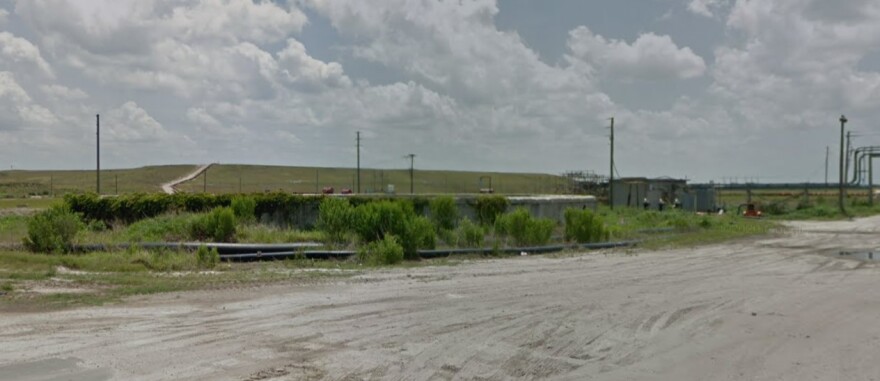Toxic water continues to pour out of a leaking phosphate retention pond into Tampa Bay. There is concern the pond could collapse.
Millions of gallons of polluted water have poured into Tampa Bay since the breach was first reported over the weekend.
Jeff Barath is an engineer on site with HRK Holdings, which manages the closed Piney Point plant. He told Manatee County Commissioners on Thursday they're siphoning off water from the pond to relieve pressure that could cause the earthen walls to collapse.
"At the rate of that discharge from that single siphon is approximately 11,000 gallons per minute," he said. "Which means that we are looking at approximately 14.5 million gallons of water that is being decanted into Manatee Harbor per a 24-hour time period."
He says at that rate, water inside the pond is dropping a foot a day. The water in the gypsum stack is 27 feet tall. Barath says they're attempting to start a second siphon to divert the water into a lined stormwater retention system, but several breaches in the line prevented that from happening Thursday.

The water flowing into Tampa Bay contains toxins such as heavy metals and nitrogen and phosphorous, nutrients which can trigger red tide and fish kills.
Baranth said the water in the pond has been diluted over time by the addition of sea water from dredging at nearby Port Manatee. It now supports fish and wildlife in its upper sections, above the more toxic sediment.
The pond where the leak happened holds an estimated 480 million gallons of mixed sea water — primarily saltwater from a Port Manatee dredge project, mixed with old process water and stormwater runoff and rainfall, said DEP spokeswoman Weesam Khoury.
Khoury said DEP Secretary Noah Valenstine and the state's new chief science officer, Mark Rains, met with DEP staff Thursday who are onsite monitoring and coordinating response efforts. She said DEP staff have been overseeing ongoing activities to contain the spill and monitor the emergency discharges.
She said the department's authorization for the controlled discharges is not a blanket authorization for the 480 million gallons estimated to be held in the gypsum stack. It only authorizes discharges at an amount necessary to ensure stabilization of the pond's walls.
This is not the first time water has poured from Piney Point into Tampa Bay.
In 2001, a tropical storm forced the release of 10 million gallons of water into Bishop Harbor. Another 170 million gallons were released in 2011, killing untold numbers of fish and marine life in Tampa Bay after heavy rains caused part of the dike at the closed plant to collapse.





